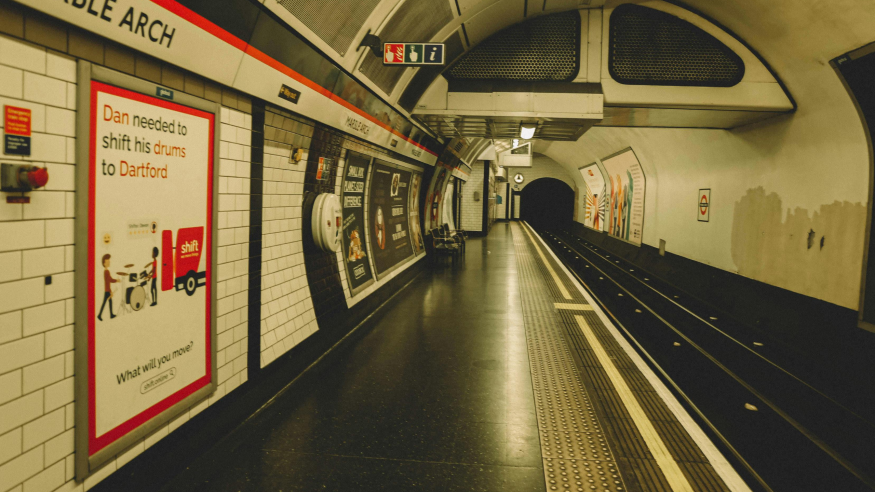
London's Underground is bracing for a week of widespread disruption as strike action by Tube workers brought services to an early close on Sunday, 7 September and shuts the network entirely from Monday, 8 September until 8am on Friday, 12 September.
The strikes involve around 10,000 members of the Rail, Maritime and Transport (RMT) union, who are demanding a shorter working week alongside pay rises. Transport for London (TfL) has offered a 3.4% pay increase, which it says aligns with inflation and industry standards, but has refused to consider reducing the current 35-hour working week.
Early Sunday Finish and Complete Closure Until Friday
Services on the London Underground operated only until 6pm BST on Sunday, after which Tube trains largely ceased running. From Monday morning until 8am on Friday, 12 September, almost no Underground trains will be in service. This means Tube stations and lines will be closed for four days, severely affecting travel plans across the capital.
The strike follows a rolling schedule, with different staff groups walking out on alternating days. Train and station staff will strike on Monday and Wednesday, while signallers and controllers strike on Tuesday and Thursday. These coordinated actions ensure the network remains at a near-total standstill throughout the week.
Other Transport Options and Alternative Routes
While the Tube will be shut down, some other transport services will continue. The Elizabeth line, London Overground and National Rail services remain operational, though they are expected to be busier than usual as commuters seek alternatives.
Bus services will run, but are likely to face heavy congestion as more people switch to road transport. Additionally, the Docklands Light Railway (DLR) will not operate on Tuesday and Thursday due to separate strike action related to a different dispute.
Commuters are advised to plan ahead, expect delays, and check live updates before travelling. Some central rail stations that interchange with the Tube may also close during this period.
@itsjonlam A reminder that London tube strikes start tomorrow! There will be limited service on tubes to start with and then no service at all for a few days. You can still take other forms of transport such as the Elizabeth Line, Overground or buses. Does this impact you or not? #londontubestrikes #tubestrike #tfl #londontube #tubestrikes London tube and DLR strikes 2025
♬ Scott Street (Slowed Down) - Phoebe Bridgers
Economic Impact and Union Demands
The Centre for Economics and Business Research estimates that the strikes could cost the UK economy more than £230 million (approximately $302 million). This figure includes direct losses such as staff absence and missed work, but excludes wider economic effects like reduced spending and productivity losses.
The RMT union insists that a shorter working week is necessary to address staff fatigue and improve working conditions. It highlights that TfL had a surplus of £166 million (approximately $217 million) last year and an annual operating budget of £10 billion (approximately $13.1 billion), arguing that pay and hours reforms are feasible.
TfL, however, maintains that cutting the 35-hour work week is neither practical nor financially viable. Claire Mann, TfL's chief operating officer, urged passengers to check before travelling and confirmed that limited services would operate only on Sunday.
Travel Advice for London Commuters
With the strikes expected to cause severe disruption, Londoners should prepare for significant changes to their usual travel routines. TfL recommends avoiding unnecessary journeys on the Tube between 8 and 11 September and to consider alternative means such as buses or cycling where possible.
Passengers should expect increased crowding on the Elizabeth line and Overground, which will carry a heavier load throughout the week. It is also possible that some Tube-connected stations may close, restricting access to other rail services.
Many commuters who rely on the Underground are advised to add several hours to their travel time, particularly during peak periods, to account for delays and overcrowding.
Impact on Events and Daily Life
The strikes are already having ripple effects beyond daily commuting. For example, US singer Post Malone had to reschedule two concerts at Tottenham Hotspur Stadium because no event licence could be granted without adequate public transport.
Businesses, especially those dependent on footfall near Tube stations, may face lower customer numbers and potential losses. Residents and visitors are urged to stay informed about changing conditions and check TfL's website for updates on affected lines and stations.
When Will Services Return?
The London Underground is scheduled to reopen on Friday, 12 September at 8am, although the situation remains fluid depending on any further negotiations or actions. TfL has called on the RMT union to resume talks and resolve the dispute as soon as possible.
Until then, Tube users should prepare for several days of significant disruption and plan their journeys accordingly.
Originally published on IBTimes UK
This article is copyrighted by IBTimes.co.uk, the business news leader



